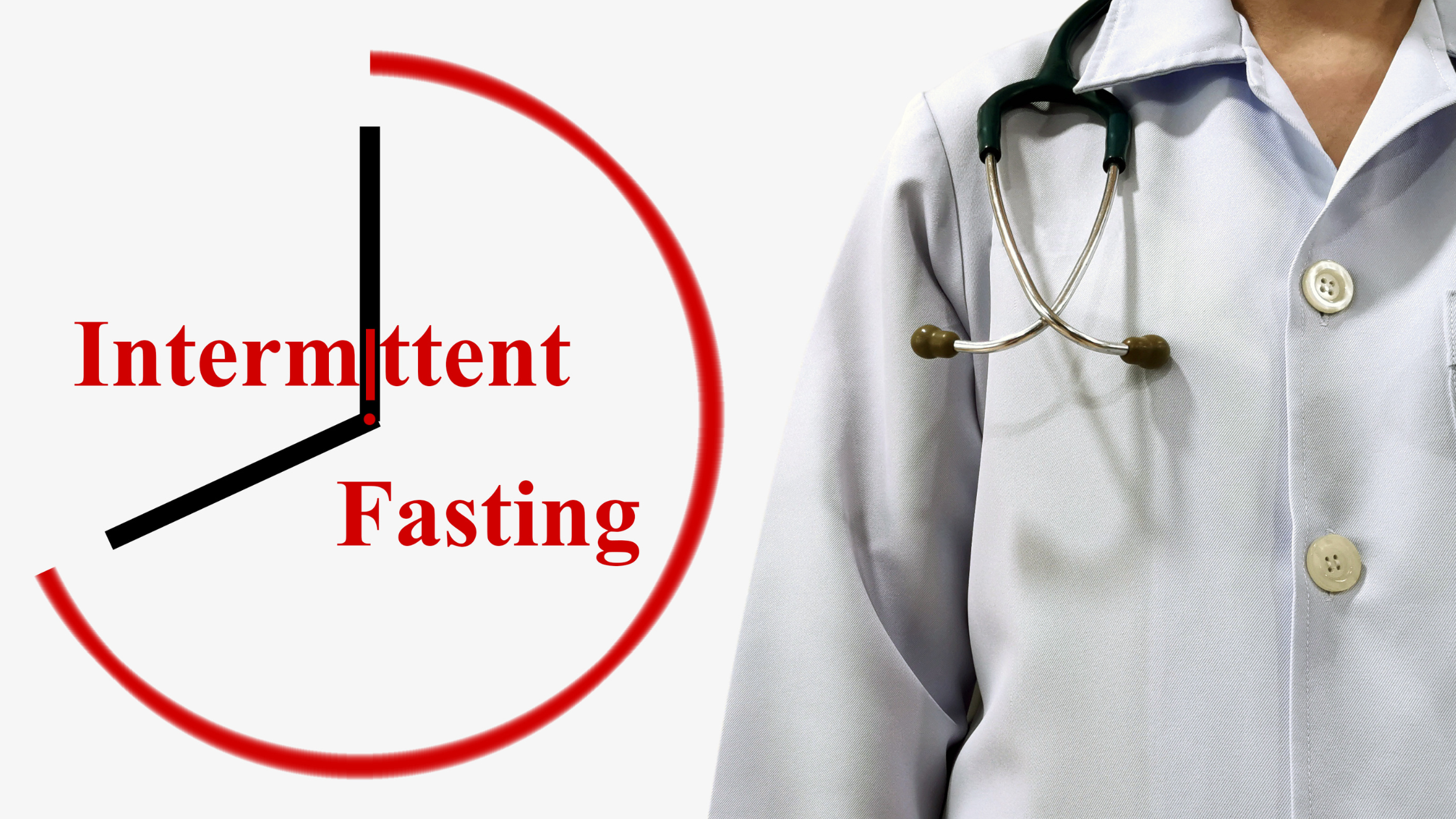Intermittent Fasting: Does It Work and Should You Try It
Written by TYE Medical on Nov 26th 2024
The idea of fasting has been around for centuries and typically has a religious context and purpose. But recent trends have revamped and repackaged it to include three primary types of intermittent fasting. Intermittent fasting is a term that describes eating patterns with alternating periods of abstaining from food and eating. Traditional fasting often includes not eating for 24 hours or even days before resuming regular eating again. But intermittent fasting allows you to go without eating for shorter periods more frequently. And this is most often for the purpose of weight loss.
But questions abound. Does it work? Is it safe and healthy? What are the drawbacks? And of course, which type of intermittent fasting is best for you?
3 Main Types of Intermittent Fasting

These fasting methods differ according to the length and frequency of the fast.
The 5:2 diet or modified fasting
This approach involves fasting for two non-consecutive days per week and eating normally for the other five days. This slashes a load of calories from your diet provided that you don’t consume twice as much on your regular eating days.
Alternate day fasting
This method alternates between a fasting day and a regular eating day. So, you eat for a day, and then fast for a day. This is more extreme than the 5:2 method as you will fast for 3-4 days per week.
Time-restricted eating
This type of intermittent fasting gives you a specific “eating window” that ranges from 4 to 12 hours. Eating windows are followed by periods of fasting that last for 12 to 20 hours. The idea is that during your eating window there are no calorie restrictions. It is the most popular approach.
Time-Restricted Eating Methods
There are several combinations for time-restricted eating. The most popular and most recommended is the 16:8 pattern. When you follow this approach, you eat during an eight-hour window and fast for 16 hours. Of course, about half of these fasting hours will be while you sleep.
Circadian Rhythm and Intermittent Fasting

How does fasting affect your body’s circadian rhythm? Also known as the circadian “clock,” circadian rhythm is your body’s 24-hour metabolism cycle that controls sleep cycle, mood regulation, blood pressure, and hormonal balance. Your daily exposure to light and dark, eating habits, and meal timing all affect circadian rhythm.
Continuing research suggests that the length of your eating window affects circadian rhythm. Specifically, lengthy eating windows ranging from 12-15 hours daily are more disruptive and increase your risk of cancer, heart disease, and type 2 diabetes. This is largely because a lengthier eating window often means a larger food and calorie intake overall, which leads to weight gain.
This means that the idea isn’t to “starve” yourself or seriously restrict calories but to shorten your eating windows and shrink your general calorie intake to a more needful level. Your overnight fasting period is a key factor in intermittent fasting. In essence, you’re extending that period of fasting by either starting your eating window later in the day or ending your eating window earlier in the evening. Your body already fasts for (hopefully) 6-8 hours in a 24-hour period.
What Are the Benefits of Intermittent Fasting

You can expect to experience benefits from intermittent fasting if you abstain from eating for at least 12 hours. But some experts claim 16 hours of fasting is the minimum. But it’s a generally accepted principle that fasting for 12-36 hours cleanses your liver of glycogen stores (stored form of glucose), alters your metabolic processes in positive ways, and positively affects your health overall.
Here is the breakdown.
1. Improved Cholesterol Levels
Both human and animal research reveals positive impacts on cholesterol levels. Intermittent fasting can reduce total cholesterol, LDL cholesterol, and triglyceride levels. It also can increase HDL or “good” cholesterol.
High cholesterol puts you at risk for heart disease. This is another indicator that intermittent fasting may be good for your general health and not only for your waistline.
2. Blood Sugar Control
Intermittent fasting can increase insulin sensitivity and reduce insulin resistance, which improves blood sugar control. This means lower fast blood sugar and A1c levels. Some research suggests intermittent fasting for men with type 2 diabetes may decrease the need for insulin therapy.
3. Weight Loss
Most of the studies of intermittent fasting center on weight loss. According to several studies, intermittent fasting results in average weight loss of between 3-7% of body weight in about eight weeks.
According to one study, a 14:10 eating pattern where you fast for 14 hours and eat for 10 hours daily can reduce your risk factors for metabolic syndrome which often leads to chronic conditions such as type 2 diabetes, cardiovascular disease, and high cholesterol. This is because intermittent fasting can decrease body fat percentage, visceral fat, and overall waist size.
4. Other Health Benefits
Intermittent fasting that reduces your evening calorie consumption and increases your overnight fasting period may lower overall inflammation, reducing your risk of breast cancer and other inflammation related conditions.
Research is ongoing concerning the effect of intermittent fasting on length of life and Parkinson’s disease.
Possible Negatives for Intermittent Fasting

Potential negatives always exist for the health-related choices you make. So let's take a look at a few downsides of intermittent fasting.
Side Effects of Intermittent Fasting
For the most part, intermittent fasting benefits weight loss, heart health, and metabolic health, but some negative side effects may exist for some people, including:
- Increased thoughts about food
- Increased hunger
- Poor mood
- Increased irritability
- Fatigue
- Fear of losing control around food
- Difficulty concentrating
- Overeating during eating windows
If any of these side effects become burdensome or create additional problems, intermittent fasting may not be best for you.
Lack of Quality Research
Research on intermittent fasting is ongoing, but most of the current studies are based only on animal research. Little long-term human research findings are available. A review of the evidence found that of the 104 health benefits claimed, only six of them were supported by acceptable research. This means that we must stay tuned for reliable understanding about the benefits and drawbacks of intermittent fasting.
Alternatives to Intermittent Fasting

Weight loss related benefits abound, and there is more than one way to achieve this goal. Here are some additional options that may work better for you.
Calorie Restriction
You can also promote weight loss and overall health when you reduce your calorie-intake by 25% daily. You can do this without changing your mealtimes. Some studies support the idea that weight loss from intermittent fasting has no greater impact on health than a traditional calorie restriction diet.
However, an important caveat may be that people tend to stick more with an intermittent fasting method for the long term as compared to a traditional calorie restriction diet. In the long term, a form of intermittent fasting may be more sustainable for some people.
This is likely a matter of convenience. With intermittent fasting, you don’t need to put tons of thought and planning into your meals. Obviously, you aim to consume generally healthy foods, but there aren’t a lot of rules or restrictions other than your limited eating window. Some may find this more manageable than counting calories throughout the day and relying heavily on meal planning and preparation.
The Mediterranean Diet
Based on the traditional eating patterns in the Mediterranean region, the Mediterranean Diet has gained great renown and a religious following. It is one of the most often doctor recommended diets. Research suggests that following this diet for about five years can reduce your risk of heart attack and stroke by almost 30%.
It can also help protect against colorectal cancer and Parkinson’s disease. And you can accomplish these benefits without undergoing routine periods of fasting.
Final Thoughts on Intermittent Fasting

Intermittent fasting is a way to boost health and lose weight. It focuses on fasting periods and eating windows with the goal of overall calorie reduction. This can positively impact metabolism and lead to weight loss, which itself helps to prevent a host of obesity-related chronic diseases.
One of many of the appeals of the intermittent fasting approach to health and weight loss is that there are a variety of methods to choose from, no diet plan to follow, no calorie restrictions, and no subscription plan. It is also flexible as you can shift your eating window to a time of day when you are least hungry and are ultimately extending your overnight fast.
If you’re not a breakfast eater, you can extend your fast and begin your eating window at lunch time. A popular intermittent fasting method is the 16:8 pattern where you limit your eating window to eight hours per day and fast for the other 16, including your overnight fast.
Ultimately, it’s about what is best for you and what works for your body. Intermittent fasting isn’t for everyone. If your body responds well, find an optimal eating window for your lifestyle and health.
But if you find that intermittent fasting isn’t the best approach for your body and health, then consider alternatives that can be just as effective for health and weight loss.
Read more about intermittent fasting and how to get started. Intermittent Fasting for Beginners: 4 Methods to Consider.


